Are Old Games Killing New Games?
push to talk #38 // feat. a co-creator of one the best tactics RPGs I've ever played
This week’s post is a two-part combo: a short essay about a concerning trend in the PC and console games market + an interview with one of the creators of Arco, who has something to say about the state of the industry for indies.
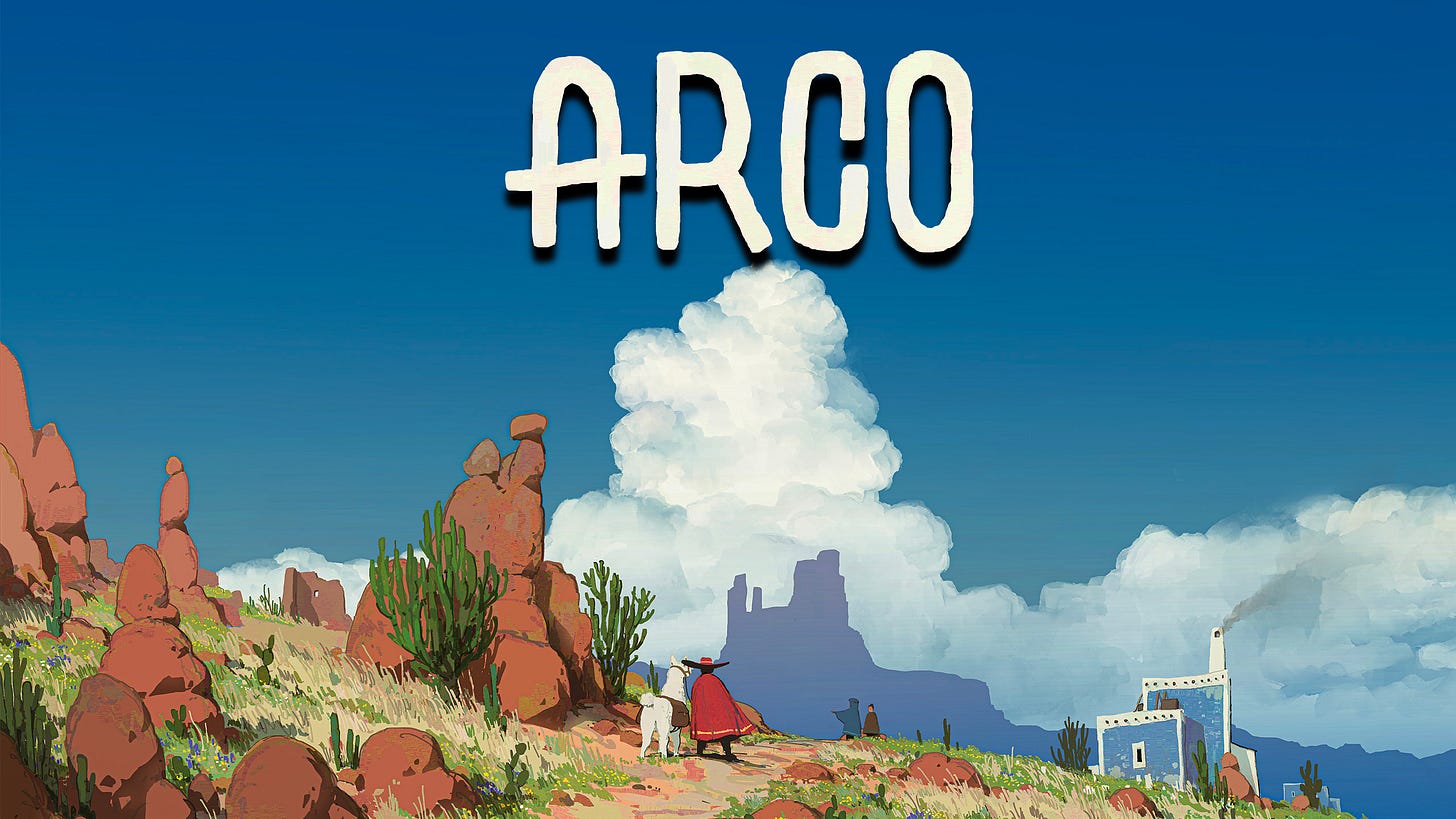
An almost-funny tragedy is decimating basically every artistic industry: there are too many things. Too many movies, too many shows, way too many songs and books and videos and email newsletters.
Across every form of entertainment, new stuff is piling up relentlessly while people seem happy to stick with the old stuff. In the music business, industry analysts are starting to worry that maybe old music is killing new music.1
The book publishing industry has the same problem. The DOJ’s lawsuit to stop Penguin Random House’s acquisition of Simon & Schuster revealed a bunch of data showing that hardly anybody buys books anymore, especially new ones.2
A similar thing is happening in games. Here’s a terrifying chart showing the average age of the PC and console games players are spending their time on.
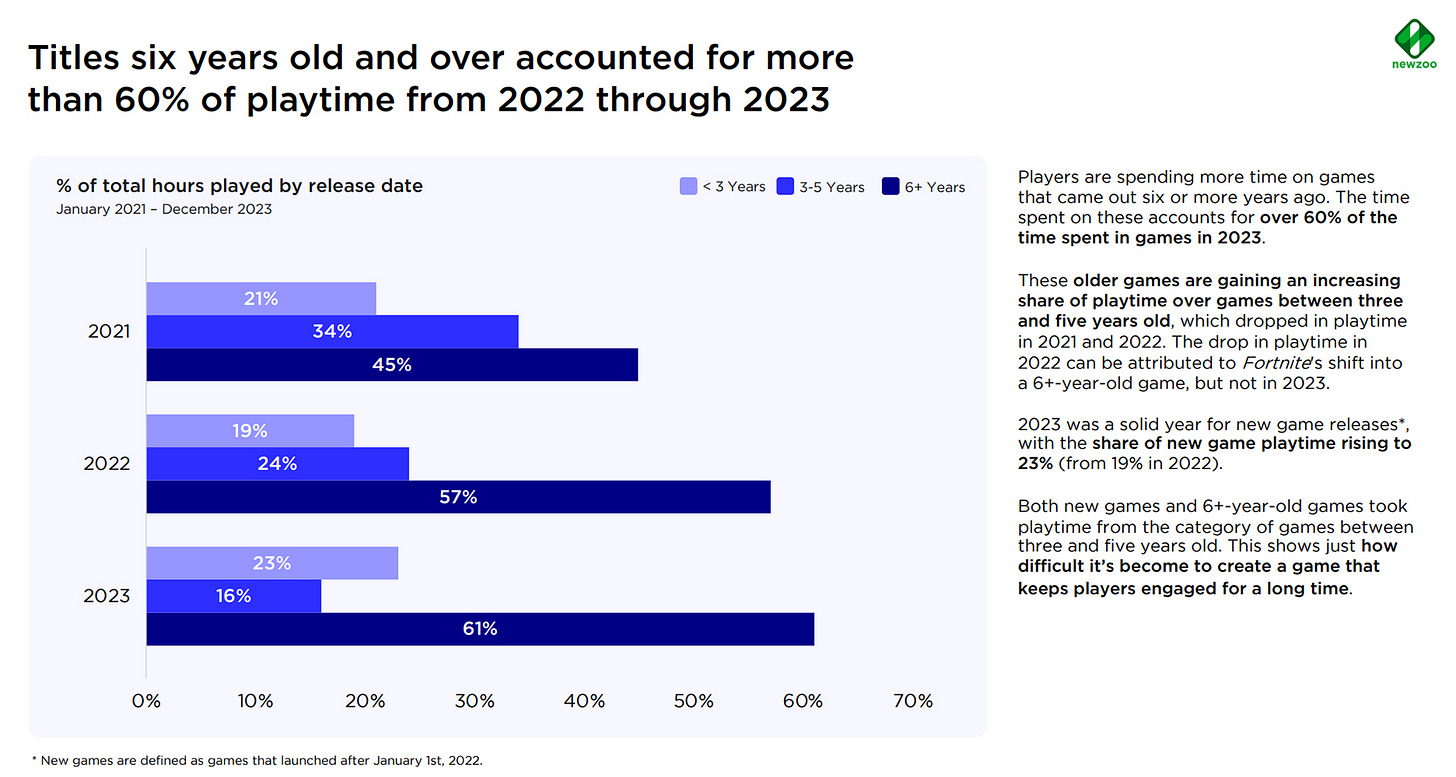
61% of all playtime last year was spent on games released over six years ago.
The trend is worsening. In 2023 just five games, most of them released over a decade ago, together accounted for more playtime than every game released in 2022 and 2023 combined.
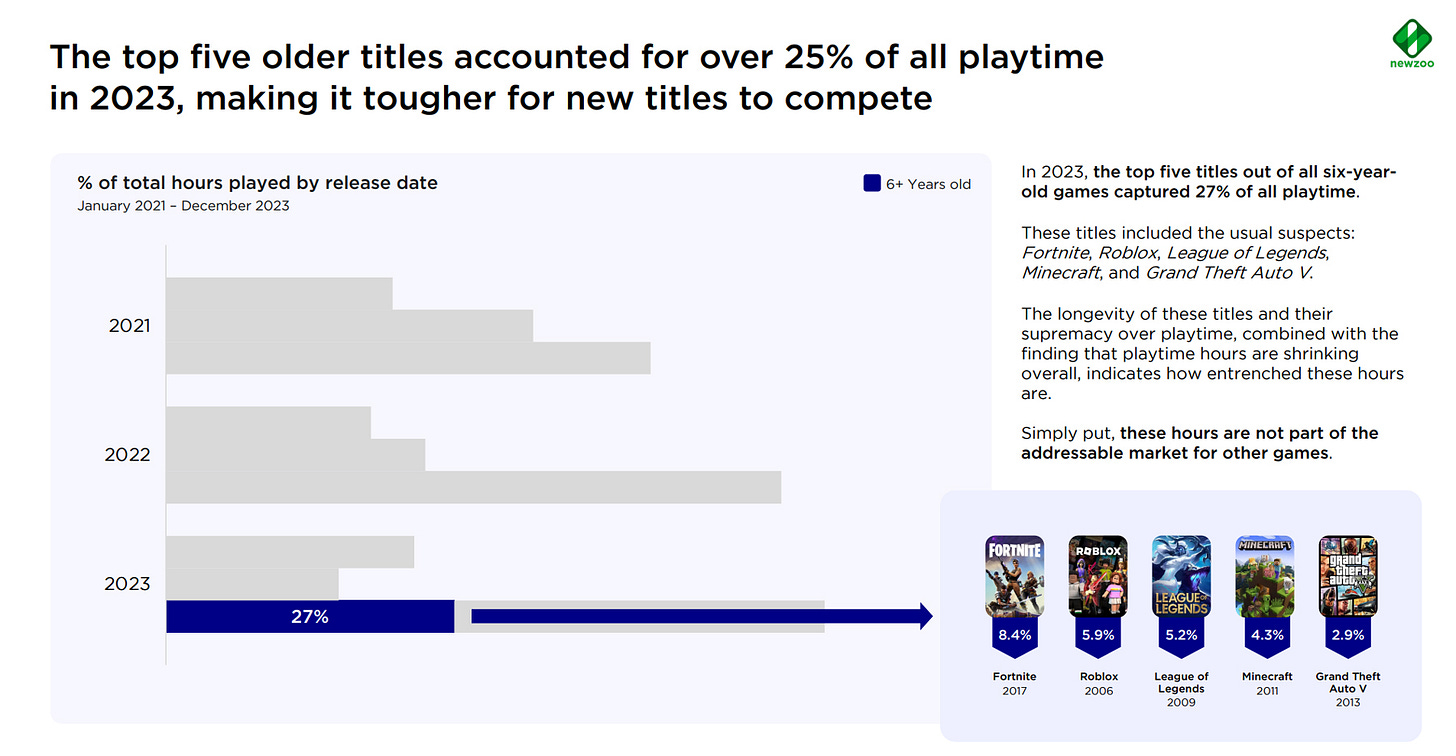
That’s insane! And you might be thinking, well, at least 23% of game hours are going toward new games—that’s an improvement over 2021 (21%) and 2022 (19%). But Newzoo slices this data further to show that nearly two-thirds of the playtime in that “new games” chunk is actually going to annual releases of long-established titles. Mostly CoD and the big sports juggernauts.
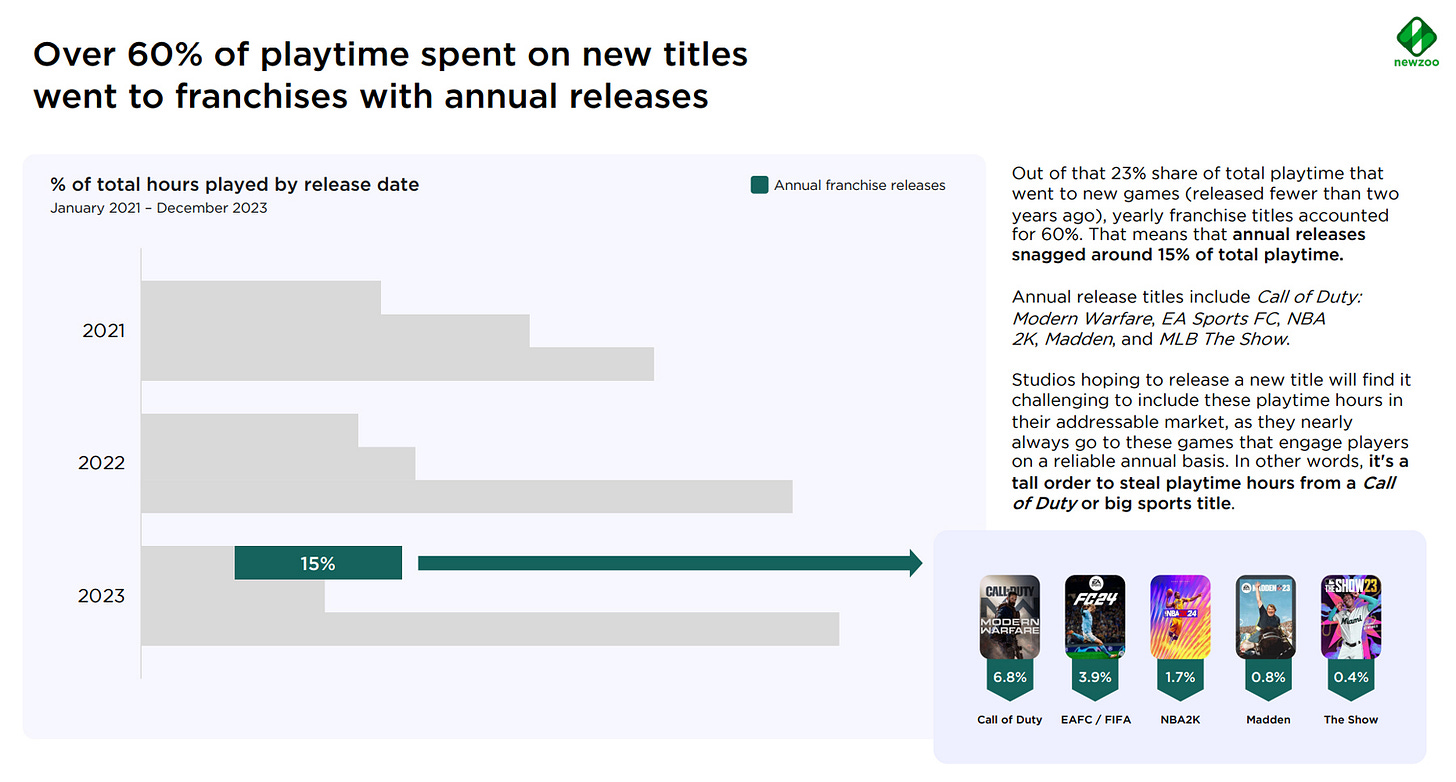
New, non-annualized games got just 8% of playtime. 92% of playtime is going to old games or annual editions of very old series.
So that might look bad, but I want to assure you that it’s actually worse than it looks, because power laws come into play once again, because the top five new games accounted for 3.5% of total time spent playing games in 2023.
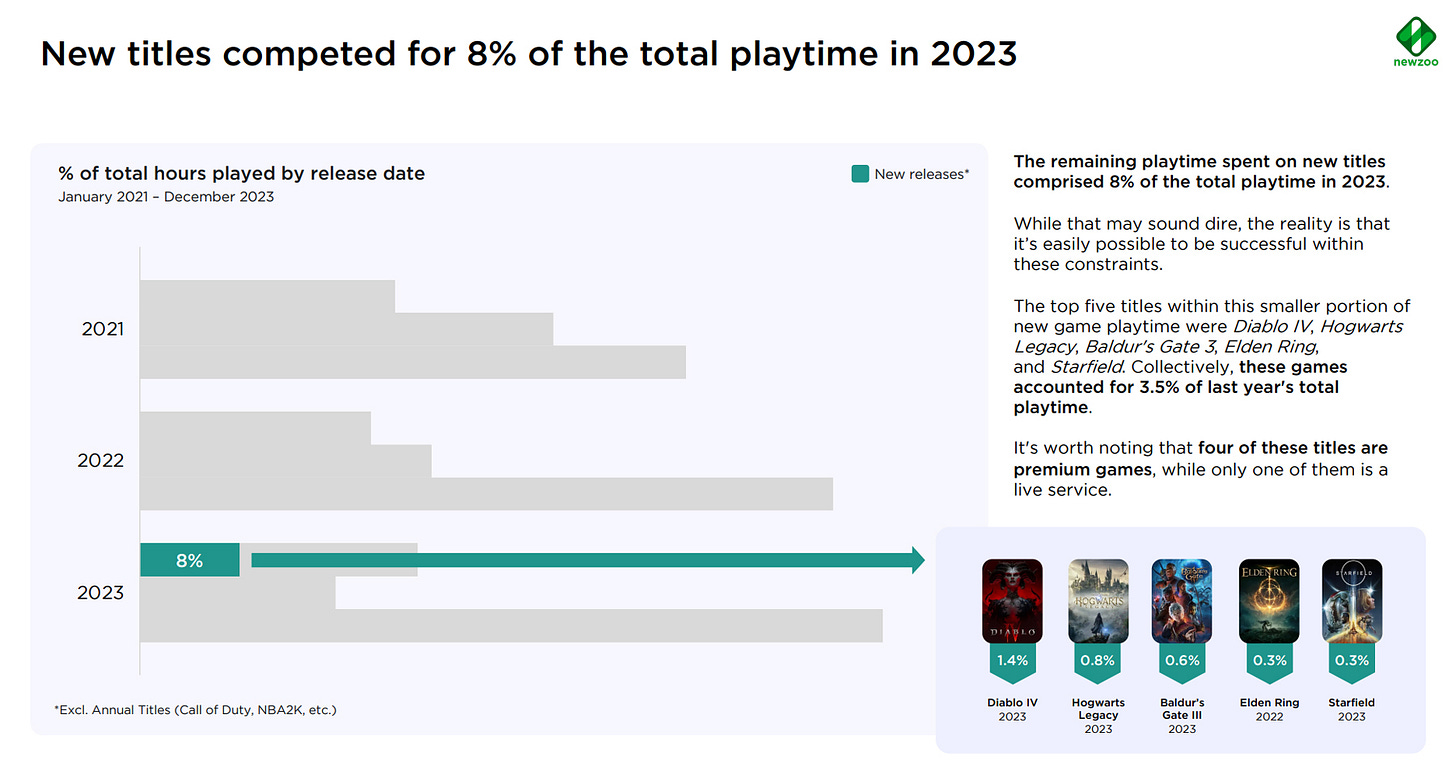
Once you remove the annual franchise games and the top five megahits—Diablo IV, Hogwarts Legacy, Baldur’s Gate III, Elden Ring, and Starfield—you’re left with a mere 4.5% of gaming time last year going to new titles.
The more than 14,000+ games3 released on Steam in 2023, plus every game released on consoles, were all competing for that small 4.5% slice of game hours.
So is it really any wonder that some truly great games are slipping under the radar?
That brings us to Arco, an incredible tactics RPG game which has “sold badly,” according to one of its lead developers. I love this game. It’s been tickling my brain both as a player and a marketer.
So this week I reached out to the Arco team and asked a few questions about the game and its struggle to find a place in the games market.
The Best Tactics Game You’ve Never Played
I don’t really like “story games.”
Don’t get this twisted. Like, I’m not gonna get mad if you do a little worldbuilding in my RPG. Go ahead and put a little mission briefing in my FPS campaign. That’s fine. But if you’re going to make me sit through long cutscenes or scroll through a bunch of text bubbles, I start to check out.4
So when I first saw Arco, I was like “Eeeeeeeeeeeeyeah… that looks like one of those Kentucky Route Zero games where you walk around trying to trigger dialogue trees.” I was hesitant to buy the game, but smart people kept saying good things about it. So I reluctantly decided to give it a chance.
10 hours later, Arco is my favorite game this year. It just kept surprising me.
The first surprising thing is the pacing. This game goes so hard. The first 15 minutes—when you play as a young Mesoamerican boy—is the only peaceful part of the whole experience. The game tricks you with a little bit of walking around and talking to cute little pixelated NPCs before the bloodshed starts. But pretty quickly it all hits the fan. And from that point until the credits roll it’s a bloody, intense, high-pressure romp across a fantasy-Mesoamerican landscape.
Everything moves fast: the story segments are snappy, the combat scenarios rarely last more than a few minutes, and there’s little downtime between battles. You even level up quickly, unlocking new abilities after roughly every other fight.
The second surprise is the combat system itself. It’s a bold evolution of the tactics RPG formula popularized by Final Fantasy Tactics and Fire Emblem. Like those games, it’s turn-based, and time-freezes in between turns. But movement is freeform (no grid) and the planning phase in between actions feels a bit like drawing up a football play directly on the environment. Once you’ve decided where your characters are going to go and who they’re going to shoot, time restarts and you watch the carnage unfold. Bullets whizzing by, dynamite exploding, pixelated blood everywhere.
You’ve kinda gotta see it in action to get it:
The final surprise is how the Arco team tied story beats to the combat system. This game has the coolest “morality” system I’ve ever seen in an RPG.
RPGs like Mass Effect let you make story decisions that were labeled by the developers as, basically, “good” or “evil.”5 Arco doesn’t do that. Instead of a morality system, it has an in-game mechanic called “guilt.” Decisions you make throughout the story can ease or burden your character’s conscience—a seemingly minor distinction that becomes way more interesting once you realize that each playable character has a slightly different code of ethics. You have to think about guilt from the perspective of the characters, and they don’t see the world the way you do. Killing, revenge, dirty tricks: these things mostly don’t bother the cast of Arco.
But some things do. Taking a piece of jewelry from a gravestone, for instance, might cause Itzae—a warrior from a culture that strongly emphasizes honoring the dead—to feel more guilty, and her guilt level has an actual in-game impact: each character’s psychic burdens manifest as literal ghosts that randomly spawn and attack you during combat. These ghosts never stop creeping toward you, even during the “safe” planning phases of combat—creating a terrible sense of dread and urgency. The greater your character’s sense of guilt, the more demons they’ll have to contend with.
Arco is pulling off an incredible trick here: causing the player actual psychic distress because of the guilt carried by a fictional character. That is genius game design.
So why isn’t this game selling better? It’s scoring 98% positive reviews on Steam. It also has a fantastic publisher, Untitled Goose Game and Firewatch backers Panic.6 It could have a positioning problem (pixel art RPGs often struggle) or maybe the message just isn’t reaching fans of other indie tactics games like Into the Breach.
But increasingly, I’m tempted to take the broader, zoomed out view. Arco is one of many thousands of games released this year, all of which are competing for that tiny 4.5% slice of playtime that gamers willingly give to new titles.
Success, even outrageous success—for small game dev teams is totally possible. I’ve interviewed many successful small developers for the newsletter this year that prove it can be done.
But when a game this good is doing disappointing numbers, you have to start to wonder: are we all just playing on hard mode now?
I discuss this topic and more in the following short Q&A with Antonio “Fáyer” Uribe, co-creator of Arco.
PUSH TO TALK: The game seems to have done exceptionally well with critics and players. I've read that the core team was pulled together from all over the world for this project. What sort of sales threshold would it need to hit to justify keeping the team together on a second project? Or is the gang going its separate ways regardless of what happens sales-wise?
ANTONIO URIBE: Yes, not being a studio means that we are not "forced" to work together if it doesn't make sense to all of us. Being from all over the world (Poland, Spain, Australia, and Mexico) makes it quite hard to sit down and have conversations that need all of us to sync. We didn't really have a conversation about how many units we needed to sell to keep working together but I guess if the first month provided enough resources to pay us like six months of work, that would have been more or less enough to keep working and having discussions about it. Sadly, this didn't happen, so some of us have to find jobs soon and that makes continuing to work together kinda hard.
Buuuuut, we enjoyed working together a lot and we are currently figuring out what the future of the team looks like. I joked in an interview recorded by the publisher that our team feels like Arco's party, we all are from different cultures and we weren't friends before, we found ourselves kinda randomly with a similar goal, make a great game, so we mainly focused on that and I think we were successful at it. For now, we are still working on updates for the game as we discuss the team's future.
Something I feel is under-discussed about this game is the relentlessness of its pacing. Everything feels so snappy and quick. You're zipping from combat to exploration to dialogue sequences, never stuck doing one thing for more than a few minutes. There are SO many combat scenarios in the game. (Do you know the exact number?) And can you talk about the philosophy that led to the game feeling so fast-paced?
I'm counting... Act I has 16, Act II has 47, Act III has 64, Act IV has 51 and Act V has 19. 197 different ones without counting the Arena (16 more). So, yeah, a little bit more than 200 different encounters. Some of those have different phases/waves and some might be just small variations of others.
The first iteration of the final structure of Arco started with a script that described the events that would broadly happen in the game, but when that was implemented in-engine eventually things got added and changed by whoever was testing and checking those moments. So at the end, the "final final" version of it got decided in engine and in the moment. I think that helped us make it feel the way you describe. I don't remember it being a design rule or anything, it just happened "organically" like that, through many iterations.
Now that the game is out, are there ways you think the combat system could be pushed further in the future?
I personally think this is part of the combat from the game that we didn't push to the limits. There's enough variation on it for the game we made, but the way the systems interact could be explored way deeper if the game was more like a roguelite than a narrative-driven game that needs to be balanced.
I was fascinated by one particular side-mission in which an NPC lies to the player character about a stolen goat to trick you into killing some innocent people. There's a lot of moral uncertainty in this game, with the only real exception being the relative certainty that Red Company members must die. Can you say a bit about how Arco's approach to morality differs from other story-driven games?
I remember that quest. I think a lot of moments and dialogues in the game were shaped by not repeating the same ideas over and over again. We wanted to keep it interesting for us to make as we moved forward and, ideally, to the player as well. I don't see it as a "lie", I think you feel it like that because we are used to being the most important characters in the game, the main player, but in this world, there are other characters that know they are more important than you and they can treat you very badly. In general we made a lot of decisions so it would be harder for the player to see which decisions ended in combat or rewards, so you had to really pay attention to the characters and their conversations.
At the beginning the "guilt" system was called "curse", that's why it was connected to ghosts. We didn't really feel comfortable with that term because a curse is something that might happen to you just because without you deserving it. The other thing we were sure we didn't want was a "morality" system because that felt more like a projection of our "modern morals" to this old and fantasy world. We eventually decided to name it "guilt" because it allowed us to shape it in relation to the character that you were playing and not our views, or the player's. There are some decisions that make one character feel guilty that would not make another one react.
Care to talk a little shit about the state of the industry for independent games right now? You guys found an excellent publisher but even established publishers are struggling right now.
Always! It's weird times, right? Attention seems to be the most important currency and it's quite divided. I've joked a couple times about doing a talk for GDC titled "making a great game and having a publisher is not enough." I think the biggest problem would be the conclusion: what's needed to actually succeed in this industry? I'm not sure.
You probably saw that we shared our general frustration about earlier sales, since then I've paid close attention to other launches and I'm seeing a lot of great games struggling to find an audience, even with popular publishers and strong launch strategies and it doesn't seem like it's getting better. I mean, since we launched Arco on August 15th, there have been many big launches like Tactical Breach Wizards, Wukong, Emio, Star Wars Outlaws, Astro Bot, Plucky Squire, UFO 50... and many more. That's just in a month!
We live in times where there are quality games released almost daily and, sadly, press has been dying more and more (or it's getting killed by greedy people, but that's a different conversation), so there are not many places that could champion your game. We are also in a moment of transition, the old strategies are not working as they used to and the new ones are not as clear to everyone. We are all running from one space to the next trying to find a nice place to hang and talk about our stuff but it's getting quite hard...
But it's not all as dire, I think this allows for smaller and weirder games to flourish, like Balatro. And making games keeps getting more accessible, the big tools are mostly free (at least to start) and there is as much information and tutorials out there as needed, there are communities everywhere and it's reaching a lot of different countries. So, even if things seem hard, the medium will continue to evolve, so we are in for a ride!
That’s it for this week. I’m gonna go use my $549 Steam Deck to play a 30-year-old game I’ve already beaten three times.
I’ll see you next Friday.
Shout out to Ted Gioia, whose headline I stole.
For some more shocking book industry numbers, check out Erik Hoel’s post, “Making a living as a book author is as rare as being a billionaire.”
I’ll put it this way: I haven’t owned a PlayStation console in years. The interactive movie stuff ain’t for me.
Mass Effect’s Paragon/Renegade system was really more like a choice between “good cop” and “loose cannon who doesn’t play by the rules.” But it rarely strayed far from a good/evil paradigm.
I’m a big fan of Panic and all the weird stuff they do. Check out my piece about their insane handheld device, the Playdate, from earlier this year.



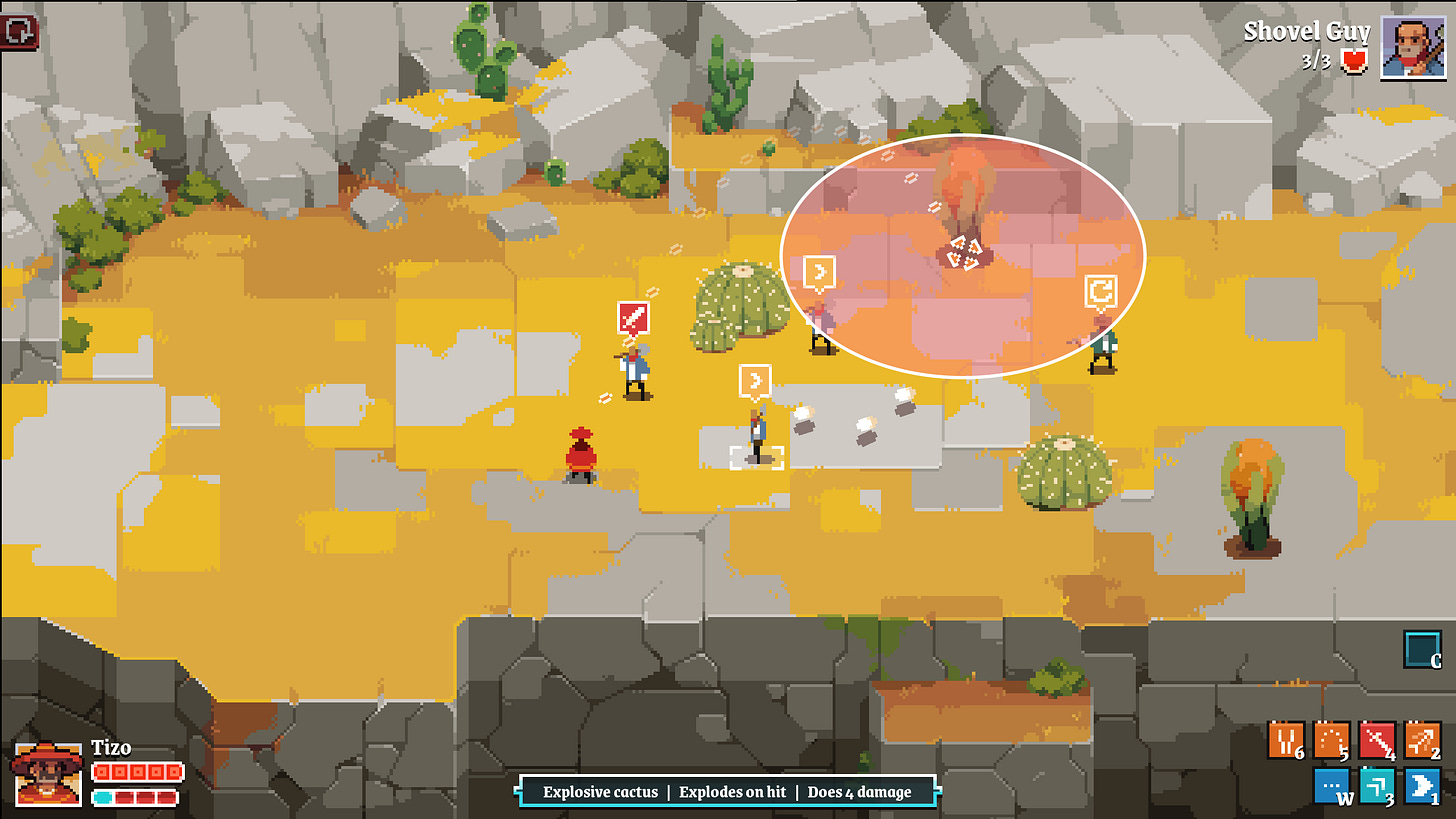

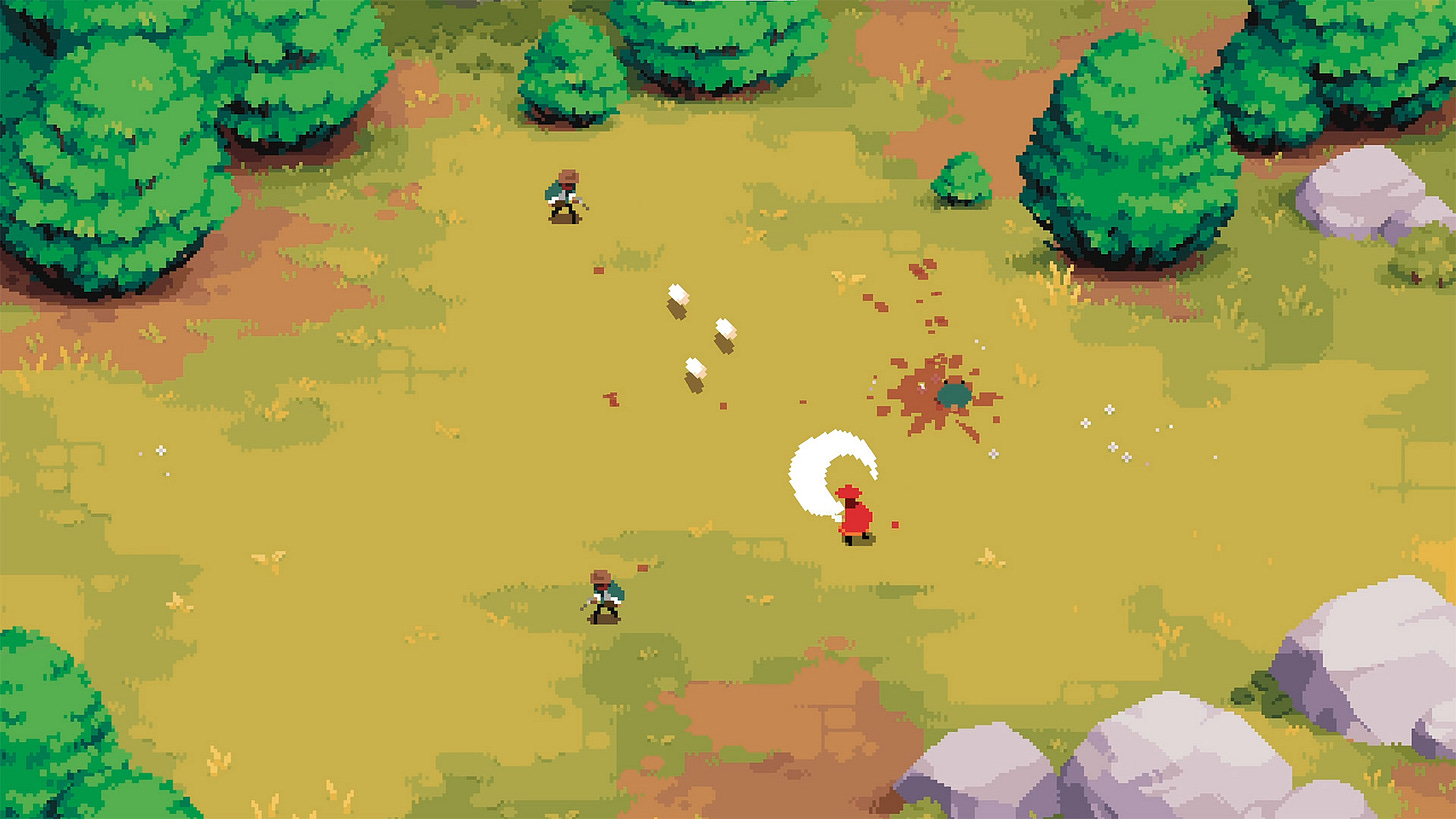
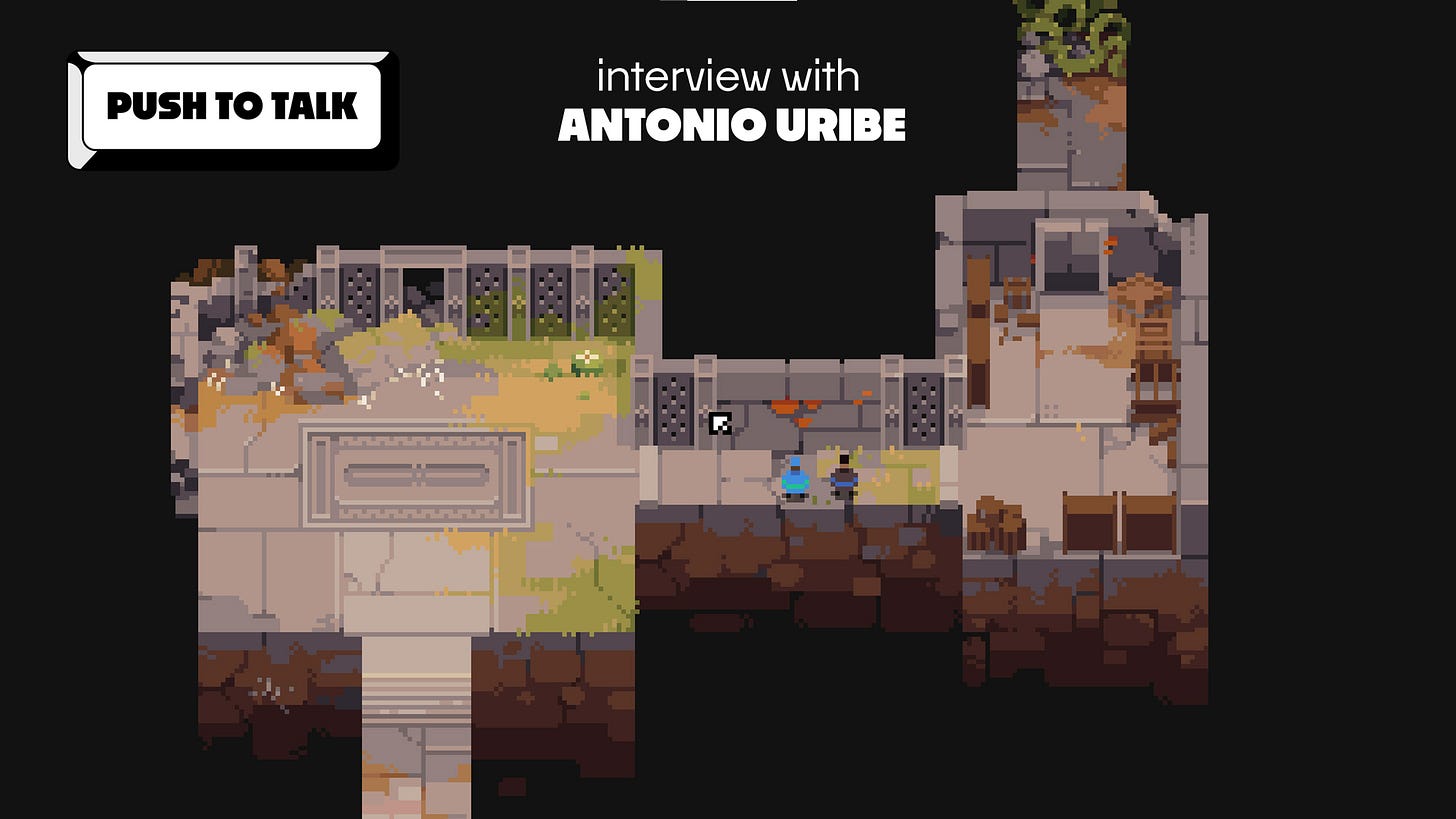
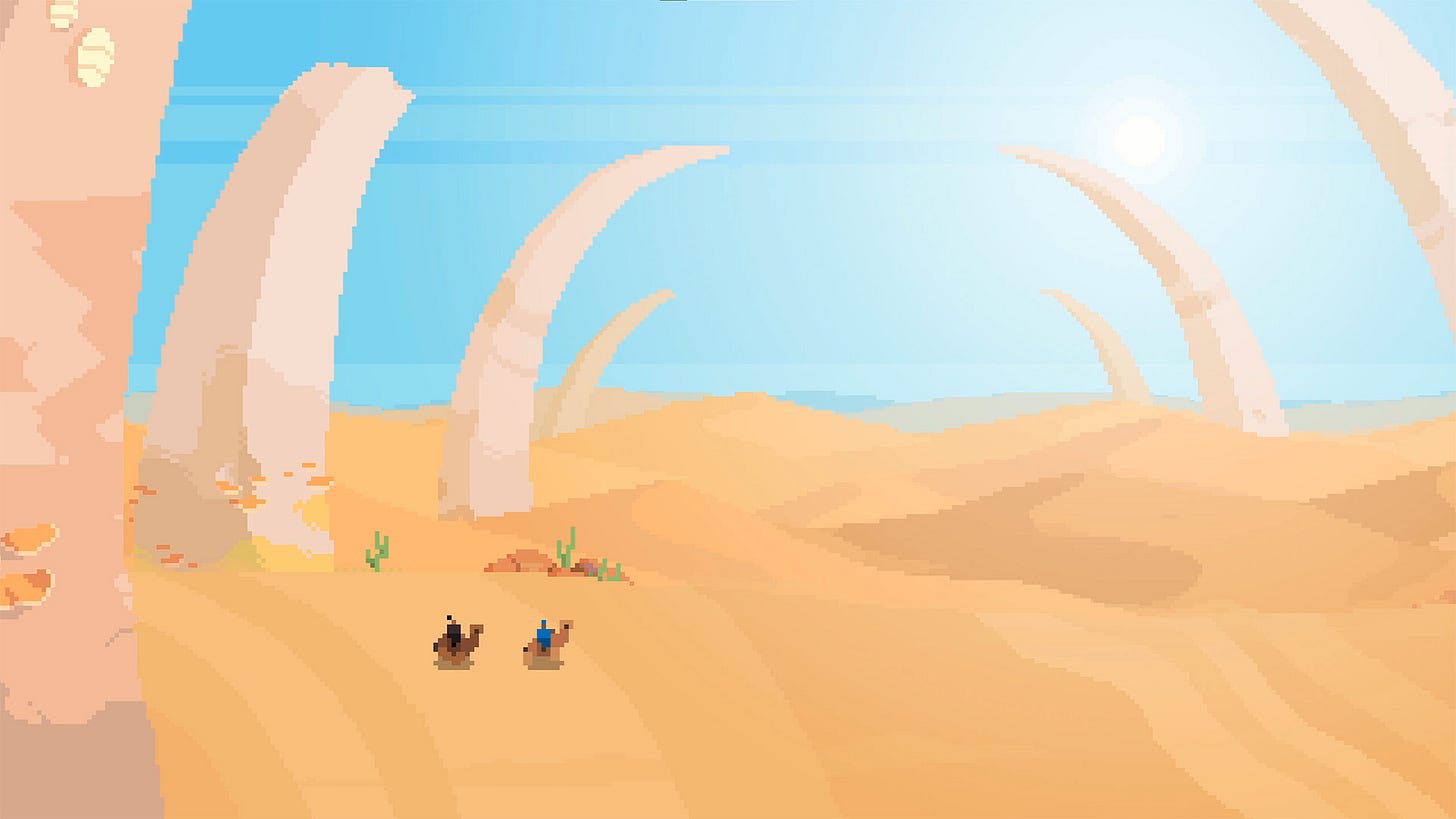
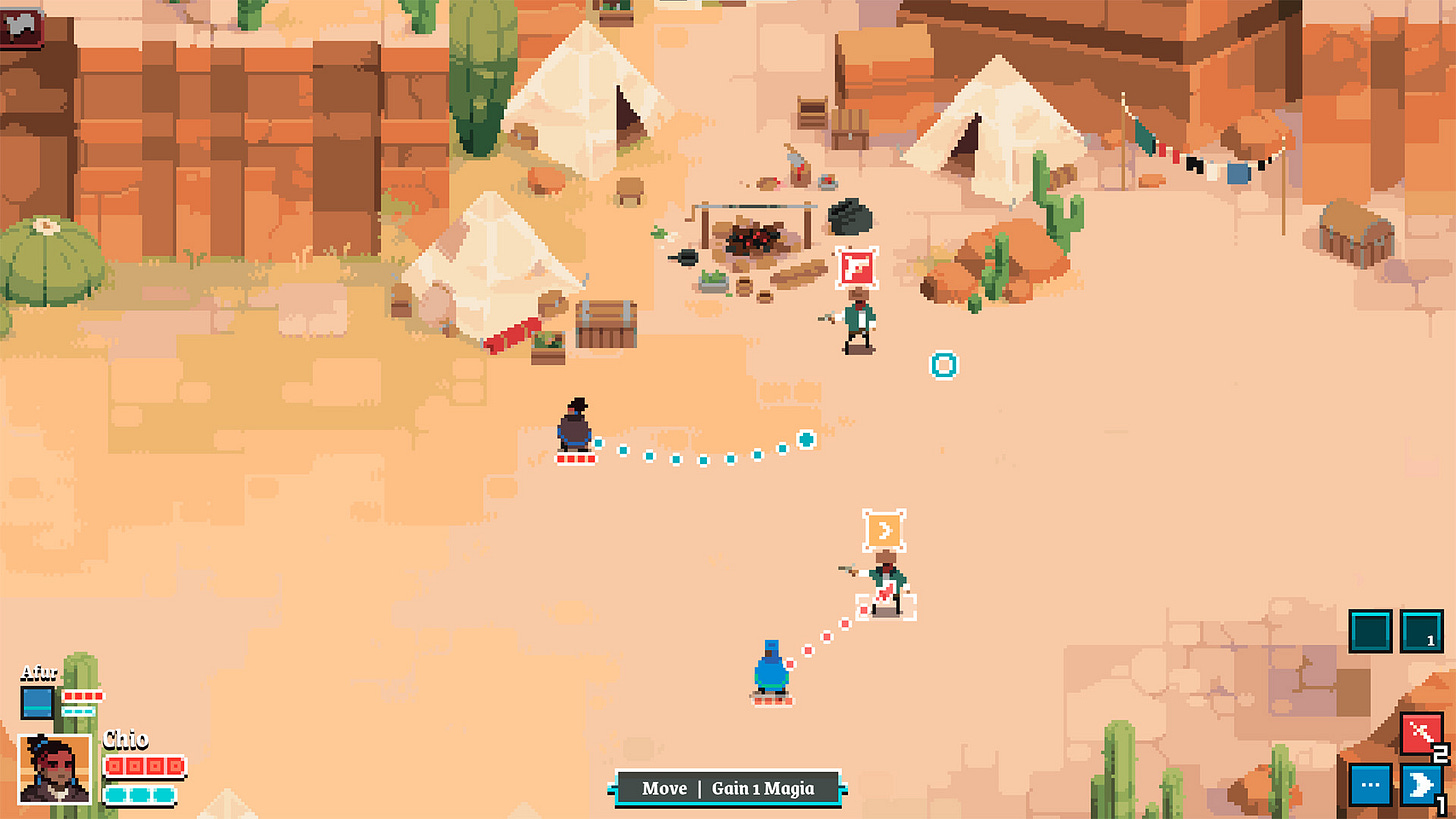
A real pity this didn't sell well. It had a demo and looks great.
Excellent as usual Ryan!